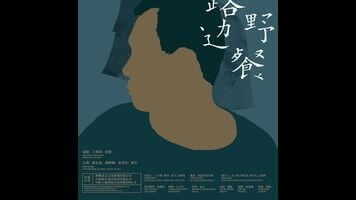Mixing the mundane and the mystical (unexplained recurring motifs, reports of “wild men” living in the forest, etc.) against a backdrop of mountainsides and crumbled concrete, Kaili Blues plays freely with reality and time, bringing to mind the work of Apichatpong Weerasethakul. Bi, part of China’s Miao ethnic minority, seems to have taken Weerasethakul as an example; the Thai filmmaker’s influence is all over Kaili Blues, and its imagery is as personal and culturally specific as Weerasethakul’s. Chen spends almost the entire movie looking for someone or something: for his nephew, Wei Wei (Luo Feiyang); for a man named Airen, to fulfill a promise for an elderly colleague (Zhao Daqing); for musicians who can play the lusheng, a Miao folk instrument; for a way across a river.
Bi is a poet as well as a filmmaker, and some of his verse is in the film. He treats almost every shot as an opportunity to further develop the movie’s plainspoken lyrical vocabulary, in which disco balls and side-view mirrors take on metaphorical significance and water stands in for time. In one of Kaili Blues’ many cryptic camera movements, the frame traces a V shape across a dank cellar, panning from a discussion of a murder to a glass of spilled water on the ground to a fight already in progress between Chen and some local toughs. Everywhere there are clocks and trains, symbols of predictability and time, and of journeys executed on a closed circuit. Presumably, this is the journey of a mind haunted by loss, abandonment, and regret. It wouldn’t come as a shock if any given scene were revealed to be a dream sequence; it’s a sign of serious poetic temperament that none of them are.
Every place, person, and thing in Kaili Blues seems to be coming from the same subconscious, mapped in circular movements and detours that build to Bi’s pièce de résistance: a 41-minute unbroken shot that follows Chen on an odyssey through a village, on foot and hired motorbike, pausing for a haircut, a trip to the tailor, a public music performance, and assorted encounters with locals who seem to be refractions of the ex-con’s past or doubles of people he’s known. The sequence, which takes up over a third of the movie, doesn’t look a lick like the rest of Kaili Blues and is as maddeningly ambitious—orchestrated with breathtaking changes in direction and a community’s worth of nonprofessional actors—as it is technically imperfect. Perhaps an older filmmaker would be less reckless. Bi, after all, is still in his mid-20s.









































